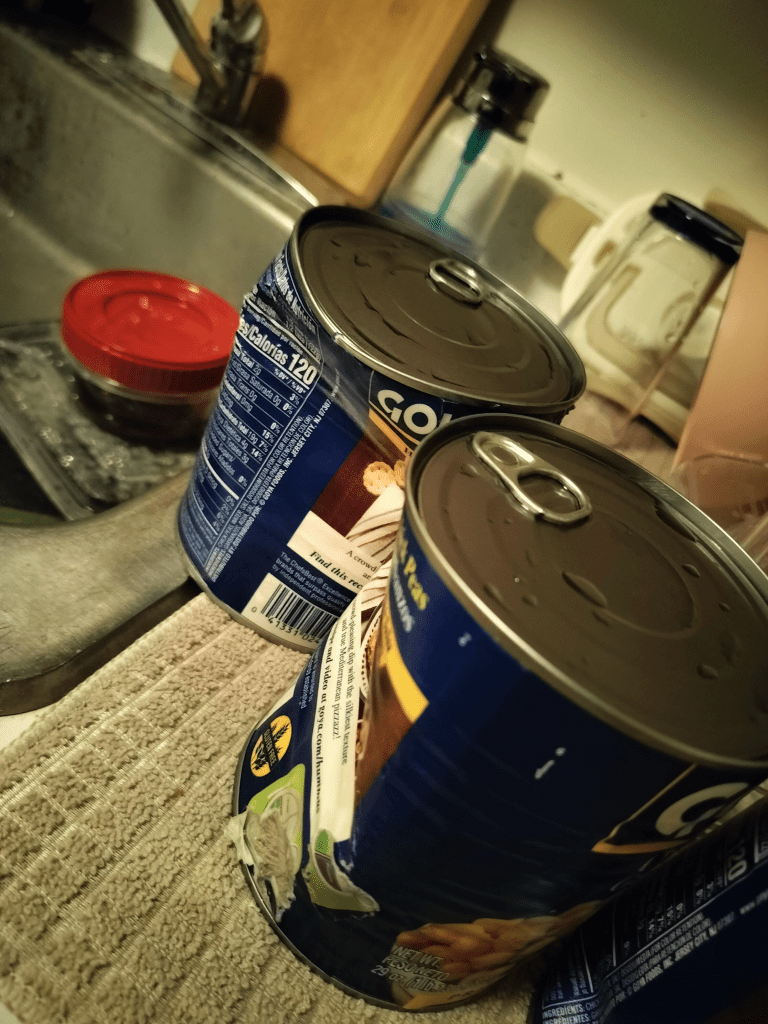We’ve all been there—you’re cleaning out the pantry and come across a can of soup with a noticeable dent. It sparks an internal debate: is it still safe to eat, or should you throw it out? While it’s tempting to avoid waste, food safety should always be your top priority. Let’s dive into the risks and safety tips to help you decide what to do with that dented can.
Understanding the Risks of Dented Cans

The primary concern with dented cans is whether the seal has been compromised. That airtight seal is the superhero of canned goods, keeping harmful bacteria like Clostridium botulinum—the villain behind botulism—out of your food. If the seal is broken, bacteria can sneak in and spoil the contents, potentially leading to severe health risks.
Even if the can looks okay on the outside, dents can weaken the structure and make it easier for air and bacteria to penetrate. So, inspecting the can thoroughly is crucial.
Factors to Consider When Evaluating Dented Cans
Not all dents are equally risky. Some are cosmetic, while others can indicate a serious problem. Here’s what to look out for:
- Location of the Dent: Dents on the seams or near the lid are more concerning. These areas are critical to maintaining the airtight seal.
- Depth of the Dent: Sharp or deep dents pose a greater risk than shallow ones. A sharp dent may have punctured the can or stressed the seams, increasing the chance of contamination.
- Additional Damage: Rust, leaks, or bulging cans are immediate red flags. These signs indicate that the can’s integrity has already been compromised.
How Dents Affect the Integrity of Canned Food
Cans are designed to be tough, but they’re not invincible. When a can is dented, it can disrupt the vacuum-sealed environment that keeps food safe for long periods. If air or moisture gets in, it creates the perfect environment for bacteria to grow.
Once the seal is broken, it’s not just about spoilage—it’s about safety. Eating food from a compromised can can lead to serious health issues, including botulism, which can be life-threatening.
Signs of Spoilage in Canned Food
Before opening a dented can, check for these telltale signs of spoilage:
- Bulging Lids: A bulging lid suggests gas buildup inside the can, often caused by bacterial activity.
- Rust or Corrosion: Rust can weaken the can, potentially allowing bacteria to enter.
- Leaks: Any leakage is a clear indication that the seal has been broken.
- Unusual Odors: When you open the can, pay attention to any off smells. A sour or metallic odor is a strong indicator that the food is spoiled.
- Discoloration or Texture Changes: If the contents look strange, trust your instincts and discard the food.
Health Risks Associated with Spoiled Canned Food

Consuming spoiled canned food can result in a range of unpleasant and potentially dangerous symptoms, such as:
- Nausea
- Vomiting
- Diarrhea
- Abdominal pain
The most concerning risk is botulism, a rare but severe illness caused by toxins produced by Clostridium botulinum. Symptoms of botulism include difficulty breathing, muscle weakness, and blurred vision, and it requires immediate medical attention.
Guidelines from Food Safety Authorities
Organizations like the USDA and FDA have clear recommendations when it comes to dented cans:
- Discard Deeply Dented Cans: Any dent affecting the seam or lid should be considered unsafe.
- Check for Signs of Spoilage: If the can shows any of the warning signs mentioned above, throw it out immediately.
- When in Doubt, Throw It Out: If you’re unsure about a dented can’s safety, it’s better to be cautious than risk foodborne illness.
Steps to Safely Handle and Inspect Dented Cans

If you come across a dented can, follow these steps to determine whether it’s safe to use:
- Inspect the Can: Look for leaks, rust, or bulges. If you find any of these, discard the can.
- Check the Expiration Date: While expiration dates aren’t always a definitive measure of safety, they provide a general guideline.
- Open with Caution: If you decide the can is safe, open it carefully and check for any unusual smells or appearances.
- Dispose Responsibly: If the food is spoiled, wrap the can in a plastic bag before discarding it to avoid contaminating other trash.
Alternatives to Using Dented Cans
Not sure what to do with a dented can? Here are a few alternatives:
- Donate Safe Cans: If the dent is minor and the can is within the expiration date, consider donating it to a food bank.
- Recycle: If the can is not safe to use, recycle it to reduce waste.
- Prevent Future Dents: Store cans in a cool, dry place and handle them carefully to avoid dents. Regularly rotate your pantry stock to keep older items at the front.
Conclusion: Making an Informed Decision
So, should you eat that soup in the dented can? It depends on the severity and location of the dent. While it might be tempting to take a chance, food safety should always come first. By carefully inspecting the can and knowing what to look for, you can make an informed decision. And remember, when in doubt, it’s better to discard the can than to risk your health. Your well-being is worth more than a can of soup, no matter how comforting it might be on a cold day.


